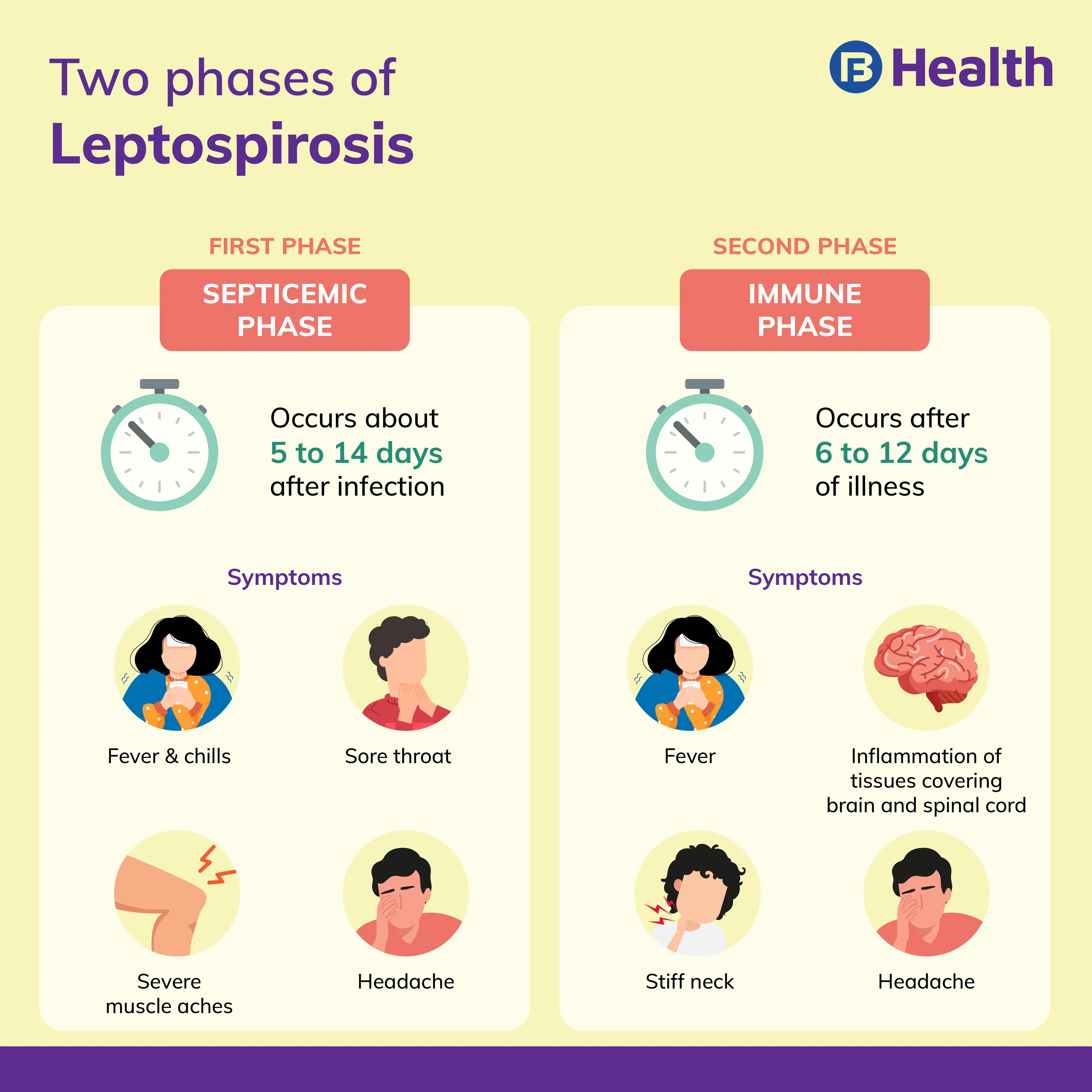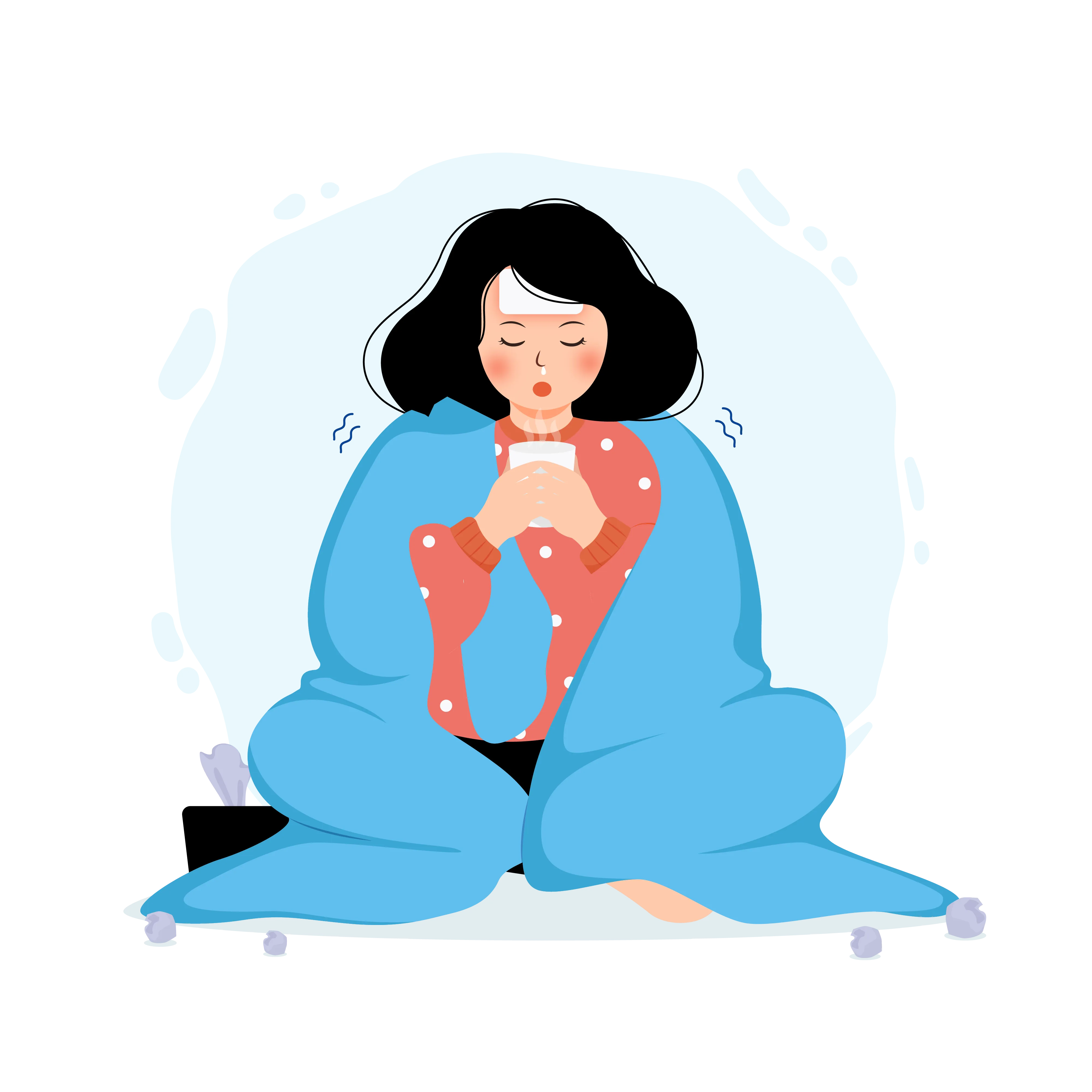General Health | 4 min read
Leptospirosis in Monsoon: Symptoms, Causes, Treatment
Medically reviewed by
Table of Content
Key Takeaways
- Leptospirosis symptoms and signs differ in animals and humans
- Leptospirosis treatment duration depends on how severe the infection is
- Keep your surrounding neat and clean to minimize the risk of leptospirosis
Leptospirosis is a bacterial infection that affects both animals and humans. It is a zoonotic disease, which spreads between species, and has a high incidence in tropical regions. Leptospirosis is a disease caused by bacteria of the genus Leptospira. The symptoms shown by this infection vary from one individual to another and often get mistaken for other diseases. In many cases, infected individuals hardly show any symptoms. If not treated properly, leptospirosis can damage the kidney, liver and even cause meningitis. [1]
It is common to experience this disease in monsoon as it is more prevalent in water-logged and flooded areas. When humans come in contact with urine from infected animals either directly or through food, soil or water, they are likely to get infected with leptospirosis.
Here is a brief overview of the disease and preventive measures you can take during the rainy season to safeguard yourself.

Leptospirosis Causes
Leptospirosis spreads through the urine of infected animals. It enters the human body through mucous membranes or through a cut in the skin. Consuming contaminated water may also cause leptospirosis. In a flood-prone area or in places with overflowing sewer water, the likelihood of contracting this disease increases. [2]
Leptospirosis Symptoms and Signs
Leptospirosis symptoms in humans include the following, [3]
- Abdominal pain
- Chills
- High fever
- Headache
- Jaundice
- Rash
- Diarrhea
- Muscle aches
- Vomiting

Leptospirosis symptoms seen in pets include the following, [4]
- Reluctance in eating
- Severe muscle pain
- Body stiffness and weakness
- Fever
- Vomiting
- Diarrhea
- Abdominal pain
Leptospirosis disease, caused by exposure to contaminated urine, occurs within 2 days to 4 weeks after the exposure to the source. Though the infection may start with fever, it generally occurs in two phases.
In the first phase, you may feel feverish along with symptoms like muscle aches, vomiting, headaches, chills. However, you may soon recover for a short period after which the illness may reoccur. If the second phase is more severe, leptospirosis may even lead to liver or kidney failure.

Leptospirosis Treatment for Humans
The leptospirosis treatment duration depends on the severity of infection. Ideally, it is treated with antibiotics like penicillin and doxycycline for about a week if the infection is mild. However, in case of severe symptoms, intravenous antibiotics are administered. For fever and muscle aches, your doctor may ask you to have antipyretics like ibuprofen.
Leptospirosis and Monsoon: How to Stay Safe During the Rainy Season?
Monsoon season is the time when you need to take extra precautions so that you don’t get affected by leptospirosis. Here is a list of preventive measures you can follow to protect yourself from the harmful symptoms of this disease.
- Keep your surroundings neat and clean as unhygienic conditions may lead to bacterial growth.
- Wash vegetables and fruits thoroughly under running water to remove bacteria, if any
- Avoid touching infected animals with bare hands. However, if you are handling infected pets or animals, wash your hands properly with soap and water.
- Clean wounds or cuts in your skin so that bacteria do not enter your body through skin abrasions.
- Drink boiled or purified water during monsoons as contaminated water is one of the main sources of infection.
- Wear protective clothing and footwear if you are taking part in any water sport activity to ensure you do not get infected.
- Control pests in your areas, especially rodents, as these are known to be the primary reservoirs of Leptospira bacteria.
[embed]https://youtu.be/2S_nAswvBzU[/embed]
While leptospirosis symptoms may often go unnoticed, timely medical interventions can help. If you notice high and persistent fever meet a doctor immediately to get your blood work checked. Schedule an appointment with a doctor within minutes on Bajaj Finserv Health. This way you can connect with a doctor near you and protect yourself from leptospirosis in monsoon seasons.
References
- https://www.ncbi.nlm.nih.gov/pmc/articles/PMC88975/
- https://www.cdc.gov/leptospirosis/infection/index.html
- https://www.cdc.gov/leptospirosis/symptoms/index.html
- https://www.cdc.gov/leptospirosis/pets/symptoms/index.html
Disclaimer
Please note that this article is solely meant for informational purposes and Bajaj Finserv Health Limited (“BFHL”) does not shoulder any responsibility of the views/advice/information expressed/given by the writer/reviewer/originator. This article should not be considered as a substitute for any medical advice, diagnosis or treatment. Always consult with your trusted physician/qualified healthcare professional to evaluate your medical condition. The above article has been reviewed by a qualified doctor and BFHL is not responsible for any damages for any information or services provided by any third party.





